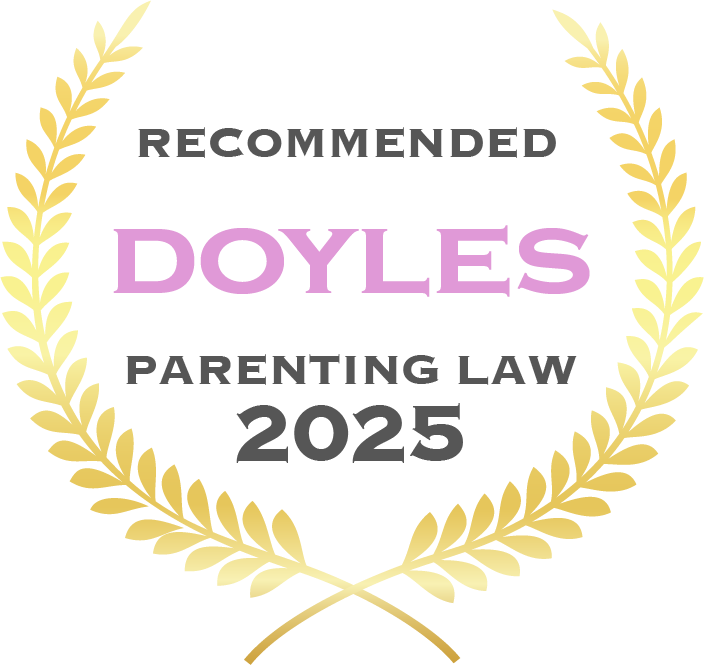
Intervention Order Defence Lawyers Adelaide
If you have been served with an Intervention Order (IO), itis important to understand your legal rights and options for defending or modifying the order. Intervention Orders are designed to protect individuals from abuse, threats, or harassment, but they can sometimes be unfairly issued or impose unreasonable restrictions on the respondent.
Why You Need Legal Advice
If you want to dispute an Intervention Order, contact Stanley & Co. Lawyers today at 08 7001 6135.
We offer a complimentary 30-minute consultation.
We can provide you with expert legal advice on defending an order, help negotiating reasonable conditions and representation in court
Helpful Questions & Answers
Heading 1
Heading 2
Heading 3
Heading 4
Heading 5
Heading 6
Lorem ipsum dolor sit amet, consectetur adipiscing elit, sed do eiusmod tempor incididunt ut labore et dolore magna aliqua. Ut enim ad minim veniam, quis nostrud exercitation ullamco laboris nisi ut aliquip ex ea commodo consequat. Duis aute irure dolor in reprehenderit in voluptate velit esse cillum dolore eu fugiat nulla pariatur.
Block quote
Ordered list
- Item 1
- Item 2
- Item 3
Unordered list
- Item A
- Item B
- Item C
Bold text
Emphasis
Superscript
Subscript
What is an Intervention Order?
An Intervention Order (IO) is a court order that restricts your behaviour toward another person (the protected person). It can be issuedby police or a magistrate and may prevent you from:
- Contacting the protected person (in person, by phone, or online)
- Going near their home, work, or school
- Remaining in a shared residence (even if you own or rent it)
- Possessing firearms or a firearms licence
- Taking or damaging property
An Interim Intervention Order (IIO) is issued temporarily and may become final if the court confirms it.
How Can an Intervention Order Be Defended?
You have the right to defend an Intervention Order if you believe:
- The order was made based on false allegations
- There is insufficient evidence that you will commit an act of abuse
- The conditions are unreasonable or restrict your daily life
- The order was issued unfairly without hearing your side of the story
To challenge an order, you must attend the first courthearing. If you do not attend, the order will likely be made final in yourabsence.
What Happens at the First Court Hearing?
The first hearing is usually within 8 days of the InterimOrder being served.
At this hearing, you can:
- Agree to the order (with or without admitting to the allegations)
- Request changes to the order’s conditions
- Dispute the order and request a trial
- Ask for an adjournment to seek legal advice
The court may:
- Dismiss the application and end the order
= Change the conditions and make the order final
- Confirm the conditions and make it final
- Schedule a pre-trial conference to discuss the dispute
Agreeing to an Order Without Admitting Guilt
If you do not wish to dispute the order but deny the allegations, you can agree to the order without admitting fault.
Important:
A Final Intervention Order has no end date and is difficult to revoke.
If you breach the order, it becomes a criminal offence with penalties up to 10years imprisonment.
Before agreeing to a Final Order, you should seek legal advice.
How to Dispute an Intervention Order
If you dispute the order, the Magistrate will schedule a pre-trial conference.
Step 1: Pre-Trial Conference
This is an opportunity to negotiate and see if an agreementcan be reached.
The protected person (or police) will present their evidence.
If no agreement is reached, the case proceeds to trial.
Step 2: The Trial
The protected person’s evidence is often:
A written affidavit (statement sworn under oath)
Recorded evidence (video or audio, in police cases)
You have the right to cross-examine their evidence.
Important: If you do not have a lawyer, you cannot question the protected person directly.
You must submit written questions to the magistrate before trial.
The magistrate or a court-appointed person will ask the questions.
Possible Defences to an Intervention Order
1. No Risk of Future Abuse
An order can only be made if the magistrate reasonably believes you will commit an act of abuse in the future.
If there is no risk of future abuse, the order should not be issued.
2. False Allegations
If the protected person lied or exaggerated the situation, you can present:
- Text messages, emails, or call records
- Witness statements
- CCTV footage or other evidence
3. No Serious Harm
If the allegations involve minor issues (e.g., one argument), you can argue the harm was not serious enough to justify an order.
4. The Order Is Too Restrictive
If the conditions affect your job, children, or daily life, you can ask the magistrate to modify the terms.
What If an Order Affects My Children?
If your children are protected persons, the order may stop you from seeing them.
If no parenting orders are in place, you can ask the court to allow contact for parenting reasons.
If there are existing parenting orders, the magistrate must consider them.
Important:
If the Intervention Order stops you from contacting your children, do not try to see them without a legal agreement.
Breaching the order is a criminal offence, even if the other parent allows it.
If you need to see your children, you may need to apply for a parenting order through the Family Court.
Can an Intervention Order Be Changed or Cancelled?
If a Final Intervention Order is issued, you must wait at least 12 months before applying to:
- Vary (change) the order
- Revoke (cancel) the order
To succeed, you must prove:
- Circumstances have changed (e.g., no longer a threat)
- The order is no longer necessary for the protected person’s safety
How to apply:
- File a written application at the Magistrates Court
- Submit an affidavit explaining why the order should change
= The protected person and police will have a chance to respond
- A hearing will be scheduled to decide the application
Can I Appeal an Intervention Order?
If an order is made against you, you can appeal to the Supreme Court within 21 days.
Before appealing, consider:
- You must apply for permission to appeal
- If you lose, you may have to pay legal costs
- The order remains in force while the appeal is decided
Appealing can be complex - seek legal advice first.
27
Combined Years Of Experience
Awards & Affiliations







.png)




.png)


.png)


.png)




